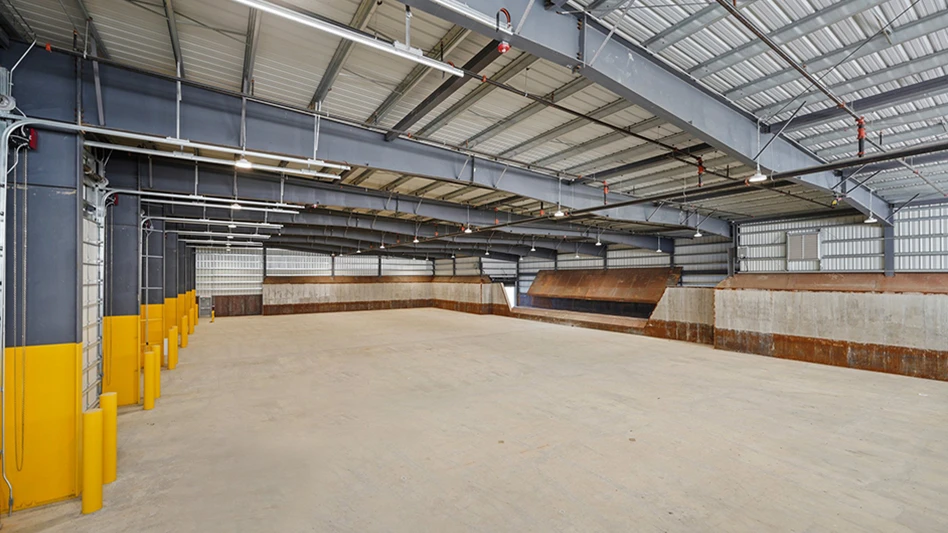
skiminok | stock.adobe.com
Call2Recycle, the consumer battery stewardship and collection program that is headquartered in Atlanta, has released its battery collection data for 2022, revealing that nearly 8 million pounds of batteries were collected for recycling in the U.S., which is 2 percent less than in 2021. However, the total figure includes more than 3 million pounds of lithium-ion batteries, which Call2Recycle says is the highest number of these batteries collected in its history.
The 13 percent increase in lithium-ion battery collections drove the 4 percent increase in overall growth of total rechargeable battery collection. More than 5.6 million pounds of rechargeable batteries and more than 2.3 million pounds of primary batteries were collected for recycling last year, according to Call2Recycle.
The organization attributes the growth in lithium-ion collections to the electrification of the economy and the proliferation of technology and consumer adoption. Call2Recycle says a little more than a decade ago, lithium-ion batteries began replacing other rechargeable battery chemistries and it's likely that these batteries are reaching end of life now.
"Battery stewardship and recycling are gaining traction due to growing awareness of the dangers of improper disposal, the emergence of more battery-dependent technology and larger batteries and the need to sustainably source lithium and other battery materials," the organization says.
That growing consumer awareness of the need for battery recycling was reflected in a 16 percent increase in online drop-off locator searches and a 12 percent increase in batteries collected from retail sites, Call2Recycle says.
In Vermont, the first U.S. state to mandate primary battery producers to finance a battery recycling program, more than 149,000 pounds of batteries were collected through Call2Recycle's established collection network, a slight increase from 2021.
Vermont had the 10th highest collection numbers, behind more populous states including California, Georgia, Texas and Florida, the organization adds.
Call2Recycle says overall battery collection numbers decreased because most collection sites outside of Vermont charge a fee to collect primary or single-use batteries. "Given budget constraints in a tightening economy, oftentimes these types of programs may be reduced," the organization adds.
Primary battery usage peaked during the pandemic, according to Call2Recycle, and as we have moved to the other side of the pandemic bell curve, usage has declined as people have returned to work and school. These batteries also have a shorter "purchase to end-of-life" time, therefore, when the overall number of batteries sold declines, so does the immediate recycling rate.
More than 26,000 pounds of e-bike batteries were collected and recycled during the first year of the voluntary, industry-supported e-bike battery recycling program, powered by Call2Recycle and endorsed by PeopleForBikes, Boulder, Colorado. Supported by 37 participating original equipment manufacturers representing 53 brands, the program has more than 1,600 specially trained e-bike battery collection sites nationwide, Call2Recycle says.
The organization adds that it wants to make disposal and recycling of these batteries "as seamless as we have for household batteries, including helping to ease the transportation and logistical complexities for safely moving these materials at end of life."
“Thanks to consumers, industry stewards and our collection partners, we’re able to continue safely and responsibly recycling batteries every year,” Call2Recycle CEO Leo Raudys says. “At Call2Recycle, we’re dedicated to making battery recycling more accessible to consumers while responsibly managing batteries at their end of life. Circularity plays an important part in ensuring safety and requires all of us—regulators, manufacturers, retailers and consumers—to work together to responsibly recycle batteries.”
Call2Recycle says consumer awareness remains one of the biggest hurdles to increasing battery recycling. "Even for consumers who know that batteries can and should be recycled, the differences in battery composition can create confusion for consumers in how to dispose of them safely and responsibly," the organization says, "Beyond that, there is also a gap between knowledge and action. Knowing that batteries can be recycled doesn’t translate directly to consumer behavior. Batteries generally can’t be recycled at curbside, so more active engagement is required from consumers."
To help with consumer education about safety issues and best practices for battery storage and recycling, Call2Recycle launched the Avoid the Spark campaign.
Get curated news on YOUR industry.
Enter your email to receive our newsletters.Latest from Waste Today
- ReMA board to consider changes to residential dual-, single-stream MRF specifications
- Miller Environmental Group Inc. appoints CEO
- DPI acquires Concept Plastics Co.
- Laurel Mountain Capital announces investment in 5280 Waste Solutions
- Cielo investor requests annual meeting
- WIH Resource Group celebrates 20th anniversary
- NWRA: NIOSH cuts a step in the wrong direction
- Valicor Environmental services acquires Affordable Waste Management







